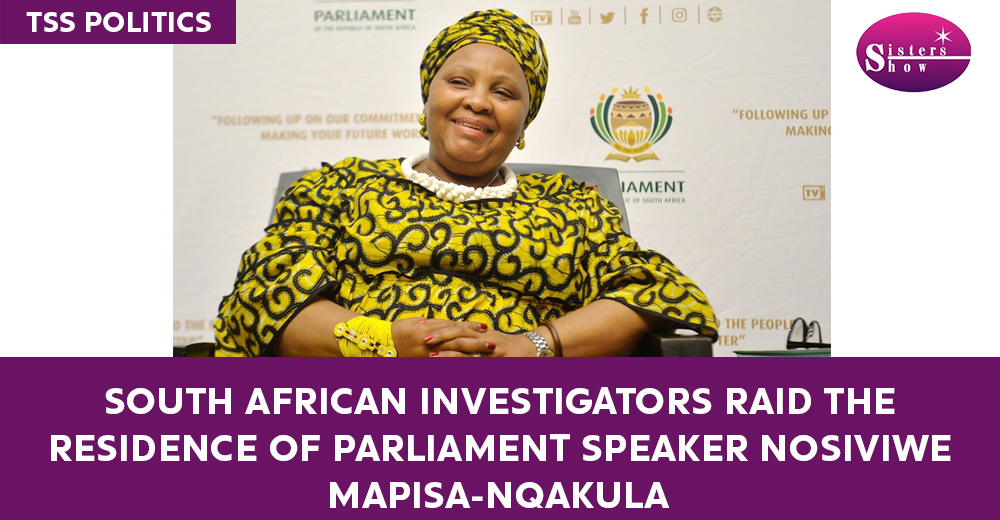
South Africa, a nation grappling with the persistent scourge of corruption, found itself embroiled in another high-profile case as an elite unit of the country’s police descended upon the Johannesburg home of Parliament Speaker Nosiviwe Mapisa-Nqakula. The operation, driven by corruption allegations, underscores the ongoing struggle to root out graft within the country’s political echelons.
Mapisa-Nqakula, a figure of prominence in South African politics and a veteran of the anti-apartheid movement, has been accused of engaging in corrupt practices during her tenure as the defence minister. The allegations suggest that she solicited bribes in exchange for awarding lucrative contracts, a stark betrayal of public trust if proven true.
The gravity of the situation is reflected in the lengths to which law enforcement has gone in pursuing the case. Acting on behalf of state prosecutors, the police unit conducted a thorough search and seizure operation at Mapisa-Nqakula’s residence, spanning a rigorous five-hour endeavor. Despite the gravity of the allegations, the statement from Parliament emphasizes Mapisa-Nqakula’s steadfast assertion of innocence, a sentiment that underscores her commitment to clearing her name.
The timing of these events is poignant, given South Africa’s ongoing struggle to confront and dismantle corruption within its ranks. President Cyril Ramaphosa’s ascent to power in 2018 was marked by a resolute pledge to combat corruption, signaling a departure from the era of his predecessor, Jacob Zuma, whose tenure was marred by allegations of widespread corruption and mismanagement of state resources. Zuma’s denial of these charges only served to deepen the sense of urgency in addressing corruption within the country.
Mapisa-Nqakula’s fall from grace, if proven guilty, would serve as yet another reminder of the insidious nature of corruption and its corrosive impact on the fabric of South African society. As a prominent figure who once held the esteemed position of defence minister for seven years, her alleged involvement in corrupt activities strikes a particularly discordant note, underscoring the need for unwavering vigilance in upholding the principles of transparency and accountability.
The specifics of the allegations against Mapisa-Nqakula paint a troubling picture of abuse of power and betrayal of public trust. It is alleged that during her tenure as defence minister, she leveraged her position to extract sizable sums of money, totaling $120,000, from a company owner in exchange for securing a lucrative tender. The tender in question pertained to the transportation of army equipment, highlighting the potential ramifications of corruption within the defence sector, an area critical to national security.
In response to the allegations, Mapisa-Nqakula has vehemently denied any wrongdoing, maintaining her innocence in the face of mounting scrutiny. Her assertion that corruption poses a significant threat to the principles of democracy and good governance underscores the gravity of the situation. Corruption not only undermines public trust in government institutions but also erodes the foundations of democracy, making it imperative to hold those implicated accountable for their actions.
The National Prosecuting Authority’s confirmation of the search operation signifies a pivotal juncture in the unfolding saga, yet much remains uncertain regarding the trajectory of the case. The absence of specific details and the lack of clarity regarding potential charges leave room for speculation, underscoring the need for a thorough and transparent investigation to uphold the rule of law.
As South Africa grapples with yet another corruption scandal involving a prominent political figure, the case serves as a stark reminder of the formidable challenges that lie ahead in the fight against corruption. It is imperative that the wheels of justice continue to turn unhindered, holding those responsible to account and sending a clear message that corruption will not be tolerated in South Africa’s democracy. Only through unwavering commitment to transparency, accountability, and the rule of law can the country hope to overcome the scourge of corruption and build a more equitable and just society for all its citizens.




